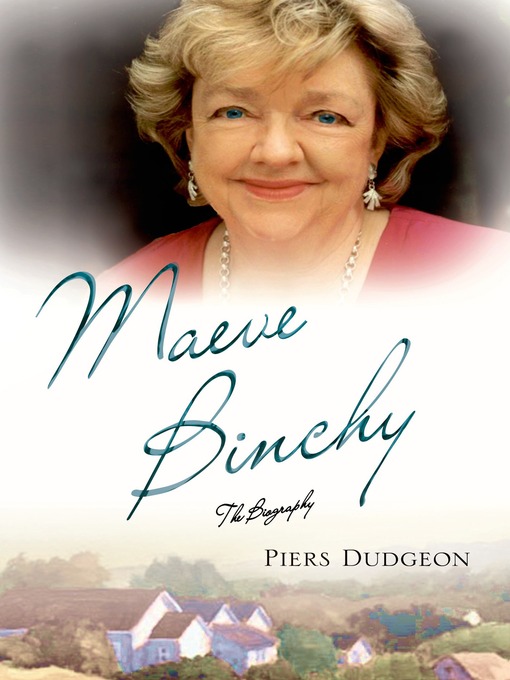
Maeve Binchy
The Biography
کتاب های مرتبط
- اطلاعات
- نقد و بررسی
- دیدگاه کاربران
نقد و بررسی

August 4, 2014
Dudgeon (Neverland) begins his narrative of bestselling author Maeve Binchy with novelistic flair, but, once past the familiar-sounding details of her early life and career, struggles for a conventional plot formula to fit the mature Binchy's life. He labors to attribute Binchy's "authentic" style to her ancestry, in particular an "indigenous Irish culture" built on music and storytelling. Yet Dudgeon also grounds the international success of her emotionally-driven, female-centered novels in modern vogues for psychology, feminism, and women's fiction. Beside the reminiscences of friends and occasional attempts at amateur psychoanalysis based on her fiction, the biography relies on personal stories that will amuse the casual fan but which Binchy's loyal followers may recognize as culled with some embellishment from her Irish Times columns. Her mature, most beloved novels merit barely a mention as Dudgeon muses on Binchy's appeal as an "intuitive" writer channeling "the collective unconscious of her people." While the biography does sensitively capture her "exhilarating, joyful spirit" as well as her vulnerabilities, Dudgeon's Binchy ultimately never seems as fully-realized as one of her own charactersâtestament, perhaps, to the unique talent that "made people feel happier for reading her."

June 1, 2014
An upbeat biography of the prolific, much-loved Irish writer.Binchy (1940-2012) wrote about what she knew: love, friendship and community in small Irish towns like Dalkey, where she grew up in a conservative Catholic family. Dudgeon (Neverland: J.M. Barrie, the du Mauriers, and the Dark Side of Peter Pan, 2009, etc.) follows his subject's hard-won striving to "discover, enhance, and believe" in her own worth. As a child, Binchy suffered from "a crippling self-consciousness" due to her weight; she responded by developing "a self-deprecating brand of humour" that served her well as an adult. As Dudgeon tells it, Binchy's life was marked by a series of epiphanies. After a student exchange trip to France-her first time out of Ireland-she realized that her worldview was provincial and vowed to travel. At University College Dublin, from which she graduated with only a pass (the lowest rank possible), she discovered burgeoning feminism, beatniks and existentialism. Sartre became her "mentor and life guide." On a train one day, she took her first drink of alcohol, which enhanced "her rapid-flow delivery of stories, anecdotes and observations on life." She "rarely lost control" but developed a fondness for gin. Another epiphany occurred during a trip to Israel, where she worked on a kibbutz and took a side trip to Jerusalem to see where the Last Supper had taken place. What she found was a cave, a sight that shocked her so profoundly that she immediately relinquished her Catholic faith. Working as a teacher, Binchy became a writer by accident when her father submitted her travel letters to the Irish Independent. Later, she was offered a job as women's editor of the Irish Times, for which she wrote for 32 years. Fiction came later, with immediate acclaim."The secret of the universe is that we do have to take control of our own lives," was, Dudgeon claims, Binchy's lifelong mantra, and he captures her ebullience and drive in this anecdotal biography.
COPYRIGHT(2014) Kirkus Reviews, ALL RIGHTS RESERVED.

August 1, 2014
In this first full-length biography of the novelist published since her death, Dudgeon (Neverland) reveals how the circumstances of Binchy's life (1940-2012) and the times in which she lived provided subject matter and themes for her works. Beginning with Binchy's happy Catholic childhood in Ireland, Dudgeon traces her development through loss of faith and espousal of existentialism to her happy marriage to writer Gordon Snell. Hired by the Irish Times in 1968, Binchy was assigned to work in London. She simultaneously wrote fiction, publishing her first novel, Light a Penny Candle, in 1982, going on to become an international best-selling author with 16 more novels and several short story collections. Dudgeon asserts that Binchy wrote in the tradition of the Irish seanachai, a narrator of tales based on everyday events, and shows that her themes include female solidarity based on Ireland's strong matriarchal culture and women's need to develop their potential and take charge of their lives. Appendixes include texts from Irish history and a time line of Binchy's family past intertwined with events in Ireland. VERDICT Highly recommended for Binchy's admirers interested in learning about the woman behind the works. [See Prepub Alert, 1/26/14.]--Denise J. Stankovics, Vernon, CT
Copyright 2014 Library Journal, LLC Used with permission.

February 15, 2014
Dudgeon, a prolific biography whose subjects have ranged from Daphne du Maurier to the composer Sir John Tavener, takes on beloved Irish author Binchy. Binchy died in July 2012, but Dudgeon met her in 2000 and interviewed her over the next 12 years, also talking to her close friends. A sentimental journey, indeed.
Copyright 2014 Library Journal, LLC Used with permission.

























دیدگاه کاربران